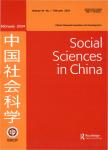State extractive capacity,policy orientation,and inequity in the financing and delivery of health care in urban China
国家汲取能力、政策导向和中国城镇卫生保健的筹资与服务不公平(英文)作者机构:Department of Government & Public AdministrationThe Chinese University of Hong Kong
出 版 物:《Social Sciences in China》 (中国社会科学(英文版))
年 卷 期:2008年第29卷第1期
页 面:66-87页
学科分类:0303[法学-社会学] 12[管理学] 1204[管理学-公共管理] 120402[管理学-社会医学与卫生事业管理(可授管理学、医学学位)] 1004[医学-公共卫生与预防医学(可授医学、理学学位)] 10[医学]
主 题:health care health inequality market-oriented reform
摘 要:This paper explores how the Chinese government's reluctance/inability to invest in health has influenced the performance of its health system in the context of urban China. It focuses on two related issues. To what extent is the financing of the health care system progressive? To what extent is the utilization of health care services equitable? Section I explains why the Chinese government has become less willing and able to bear the burden of health care during the era of economic reform and inspects the impacts of these changes on the structure of overall health expenditure. The following two sections empirically examine the extent to which the shift toward out-of-pocket spending has made health care less accessible and less affordable for the poor and vulnerable. Section IV explores how inequity in health care and health services has put groups of people who are already socially disadvantaged at more disadvantaged positions. The study finds that the market-oriented health reform in urban China has exacerbated the cost problem that it intended to solve, reduced access to health services for the most vulnerable, and increased the instances of illness-induced poverty.



